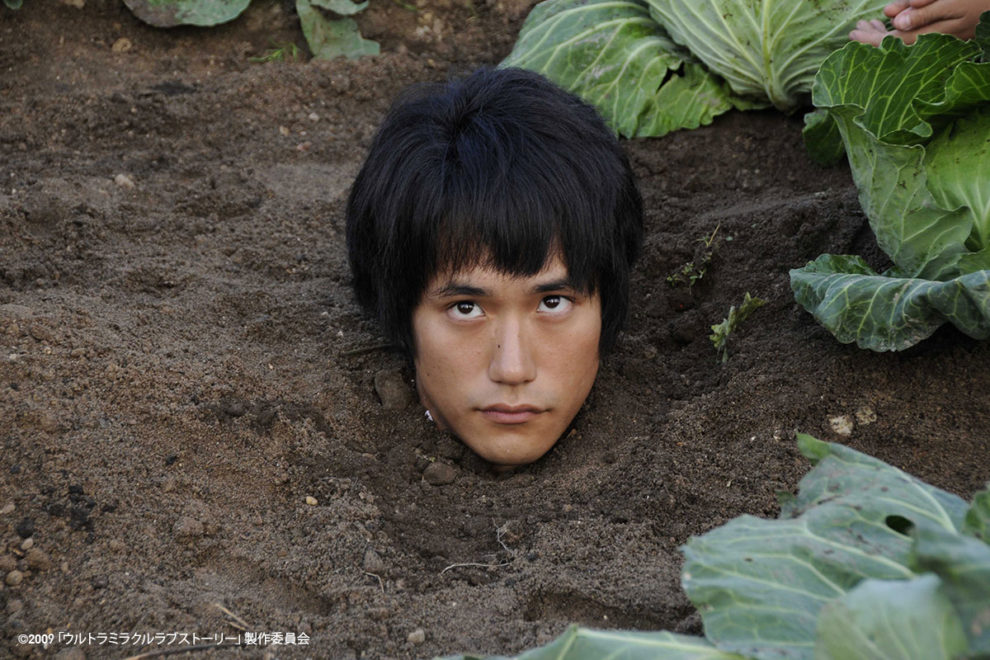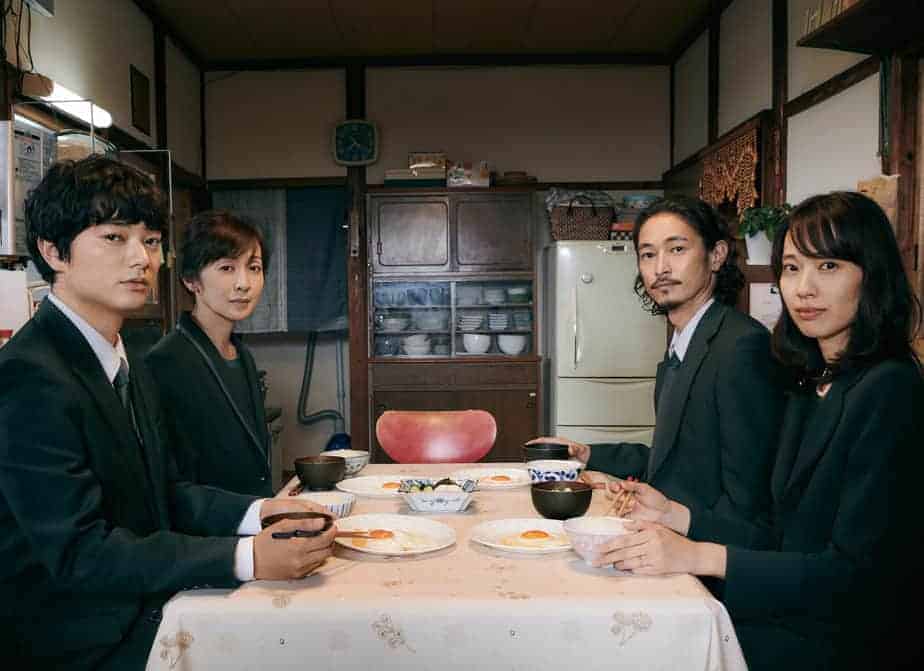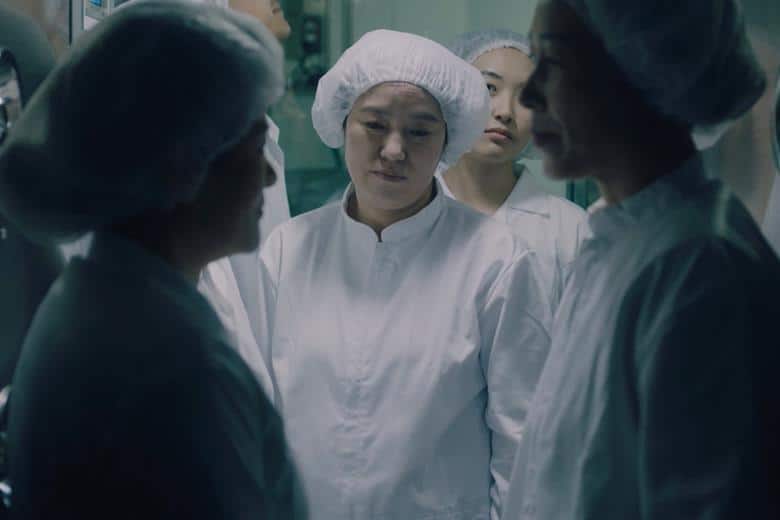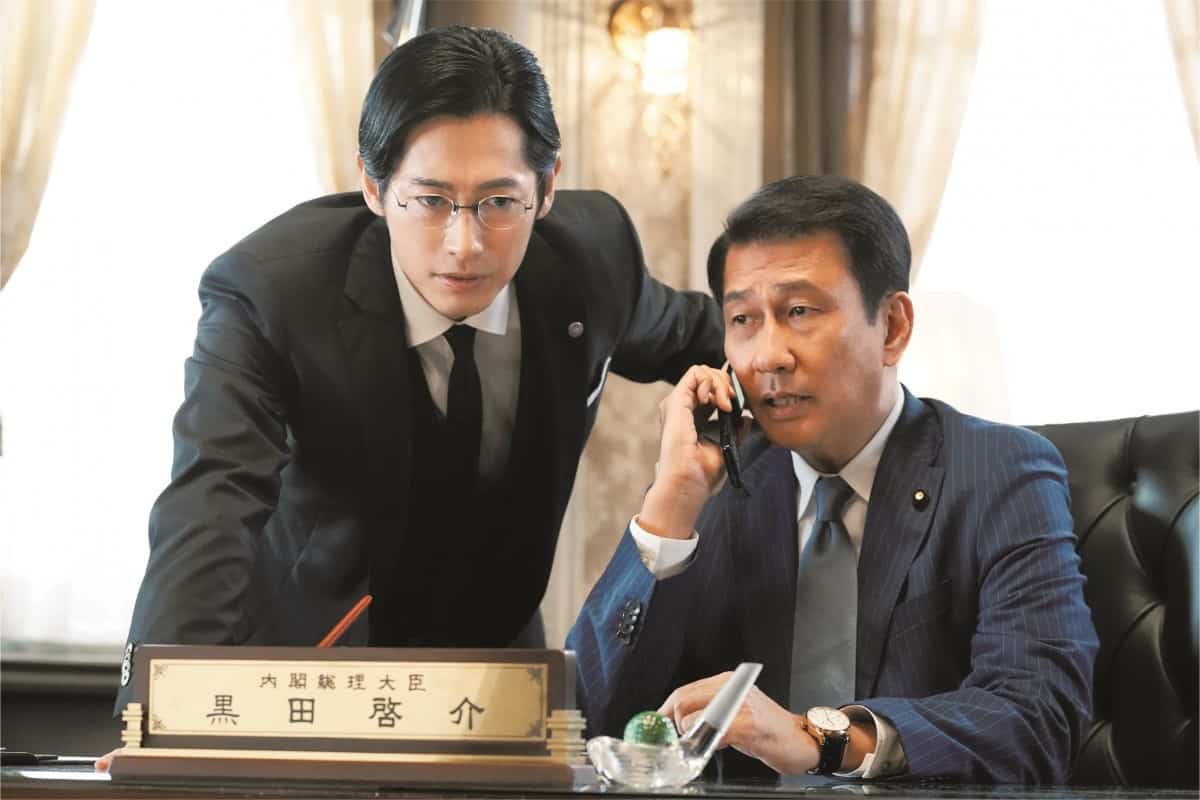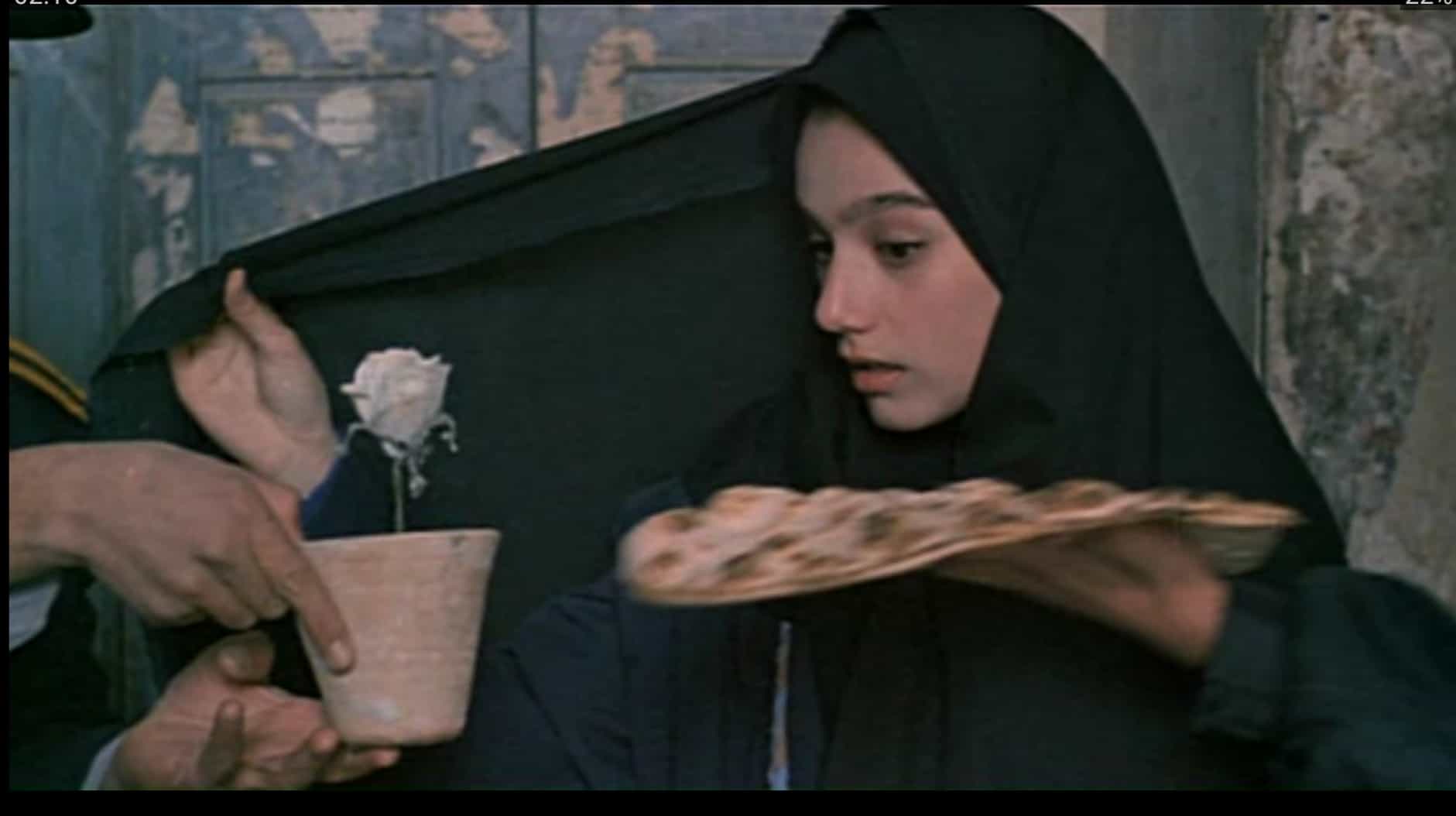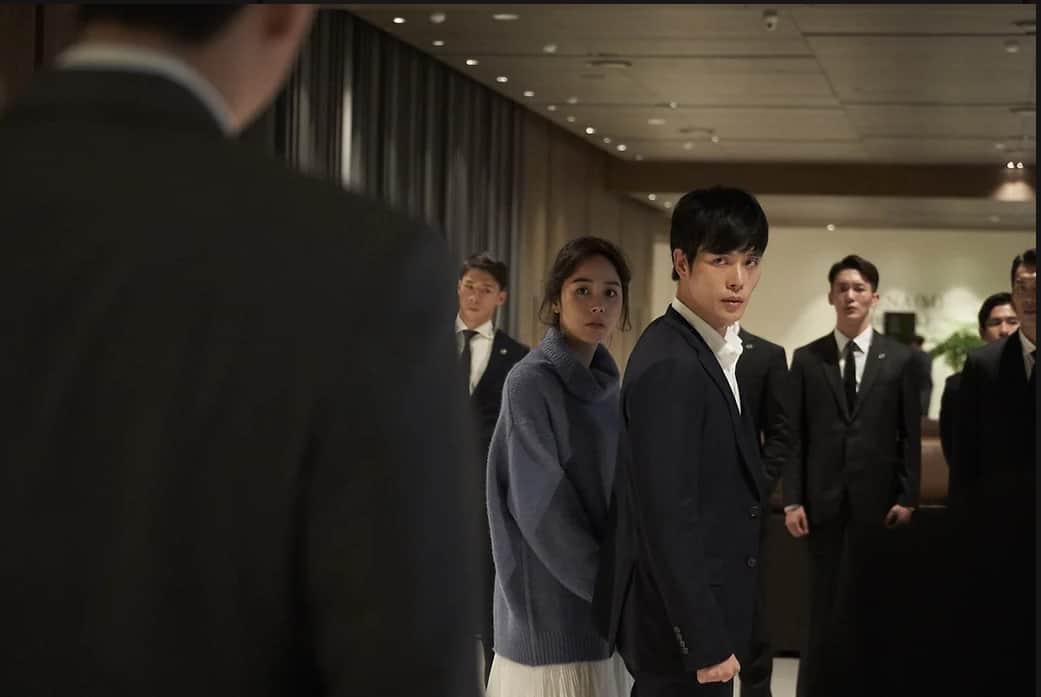Bizarre rom-coms are nothing new to Japanese cinema, with the country's film industry often priding itself on its more unorthodox works. The case is no different for “Bare Essence of Life”, Satoko Yokohama's second feature film that made its debut in 2009. While certainly not dull, a string of narrative hiccups and a challenging protagonist mean that the film is a mixed bag, to say the least.
Bare Essence of Life is screening at Osaka Asian Film Festival

Yojin (Kenichi Matsuyama) is an enthusiastic farmer who, following the taped instructions of his late grandfather, grows and sells organic crops with his ageing grandmother (Misako Watanabe). When a mourning teacher, Machiko (Kumiko Aso), comes to Yojin's small countryside town, the young man is immediately infatuated. Yojin, who in his own words is “not broken, just different”, finds a unique method of dampening his obnoxious social behavior in a bid to win over Machiko.
“Bare Essence of Life” is an odd film, although not in the eccentric way that you might expect from an unconventional Japanese rom-com. What starts off as a mostly straightforward narrative deviates massively from the set formula and not always for the better. Of the more enjoyable of these deviations is a bizarre sub-plot concerning evolution. Machiko and Yojin talk sporadically about the concept of evolution, and it ends up playing a crucial role in the film, as the young farmer douses himself in pesticide. This inadvisable form of bathing, along with several other abnormalities Yojin develops, leads to some of the more outlandish and, in a couple of instances, visually jarring moments in the movie. It must be said unorthodoxy is always appreciated in these otherwise tired stories, but in the case of Yokohama's film, there are a handful of key narrative and character choices that just don't click.
At the film's heart is the relationship between Yojin and Machiko. While the aspiring farmer has feelings for the recently bereaved teacher, which he makes abundantly clear very early on, she doesn't reciprocate them. Whether it's the tragedy of Machiko's past that prevents her from getting close to Yojin or his erratic behaviour, their relationship remains in a grey area for the majority of the film. It's a nice love story to an extent, and there are certainly wholesome moments shared between the two. However, the minimal relationship that they have is often forced, with leaps in logic resulting in a rather unbelievable companionship.
The truth is, Yojin is a largely insufferable protagonist. It feels harsh to say so, as the character is obviously affected by some sort of condition, which severely affects his social skills. However, there's something especially grating about his interactions throughout the first half of the film that makes him a very challenging character to get behind. Unfortunately, it appears that such a reaction to Yojin is entirely intended, with many of the supporting characters being as equally frustrated with his antics as I would imagine much of the audience is also. I found this depiction of a mentally challenged character to be troubling and off-putting, and it severely hindered my enjoyment of the film. Perhaps others will feel differently, but simply shrugging off Yojin's condition and behaviour as ‘quirky' doesn't quite cut it for me.
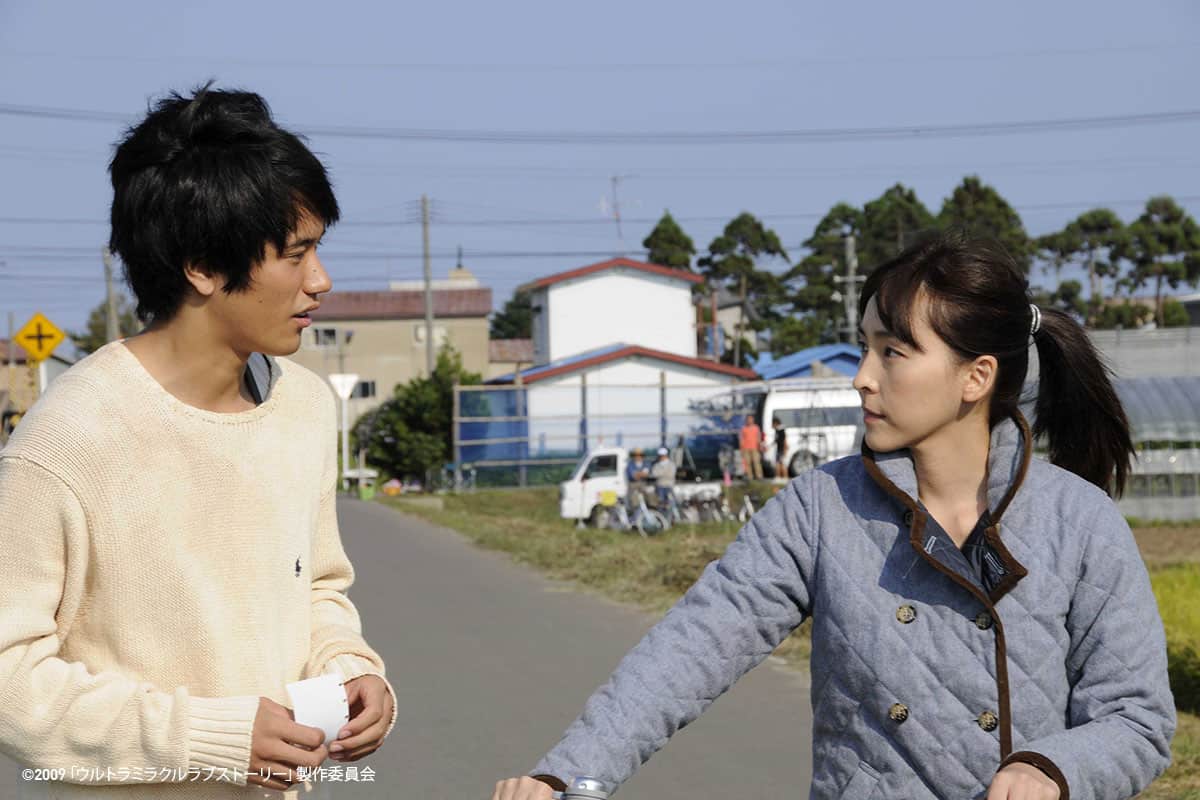
In terms of performances, it's hard to judge Kenichi Matsuyama. On the one hand, he's an enigmatic and engaging screen-presence, yet, on the other, he's frankly annoying. Considering the intention behind Yojin's characterization, I can only conclude that the actor is doing a good enough job of fulfilling the director's vision. Kumiko Aso is charming in the role of Machiko, as she's often bewildered at the goings-on in the small Aomori prefecture town. The supporting cast members all do a decent job, but outside of Matsuyama and Aso, no one else really takes a central role. However, it's worth noting the restrained performance from Misako Watanabe as Yojin's grandmother, whose reserved nature leads to some emotional moments in the film's latter stages.
There's nothing in “Bare Essence of Life” to cast doubt on Yokohama's skill as a director, at least as far as the visuals are concerned. The pleasant small-town setting is depicted in an appealing and vibrant fashion, with the director breathing life into scenes that could so easily be cinematically stale. Yokohama also presents some of the more narratively jarring sequences noted earlier in a grounded manner that mostly keeps in line with the film's general tone and atmosphere. Safe to say, the feature's issues lie far more with Yokohama's script than with her directorial ability, which is in no doubt as far as this project is concerned.
“Bare Essence of Life” is confusing in its messaging, troubling with characterisation, and frustrating in its narrative progression. However, the extent to which these problems will hamper your enjoyment will vary from person to person. There's a wholesome love story of sorts to be found here, but you'll do well to ignore the questionable narrative choices and notable leaps in logic that dampen Satoko Yokohama's film overall.


